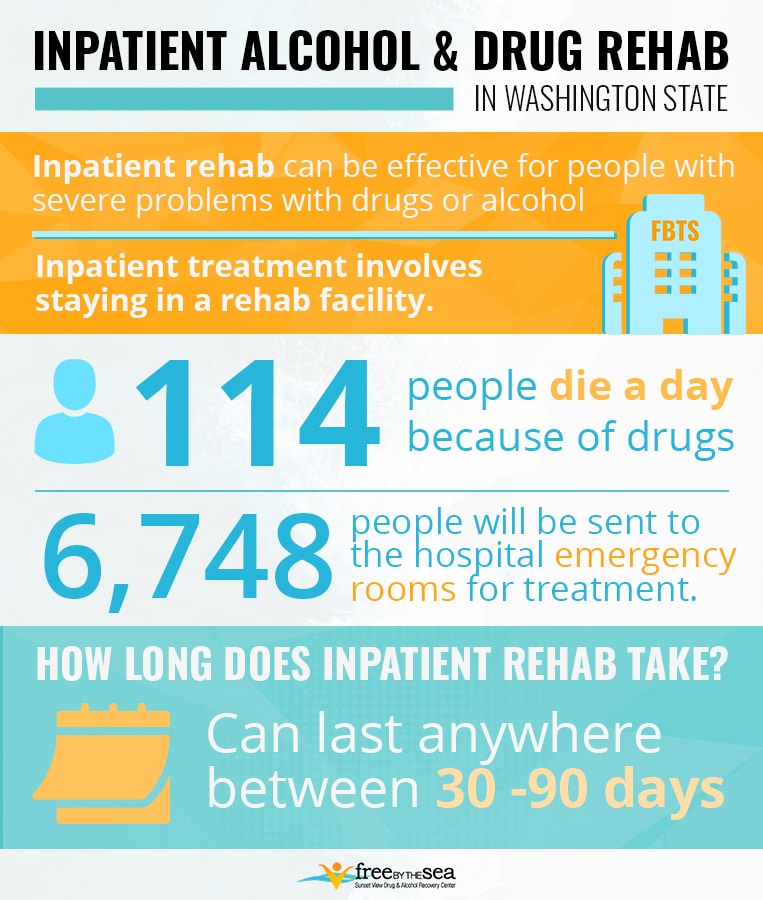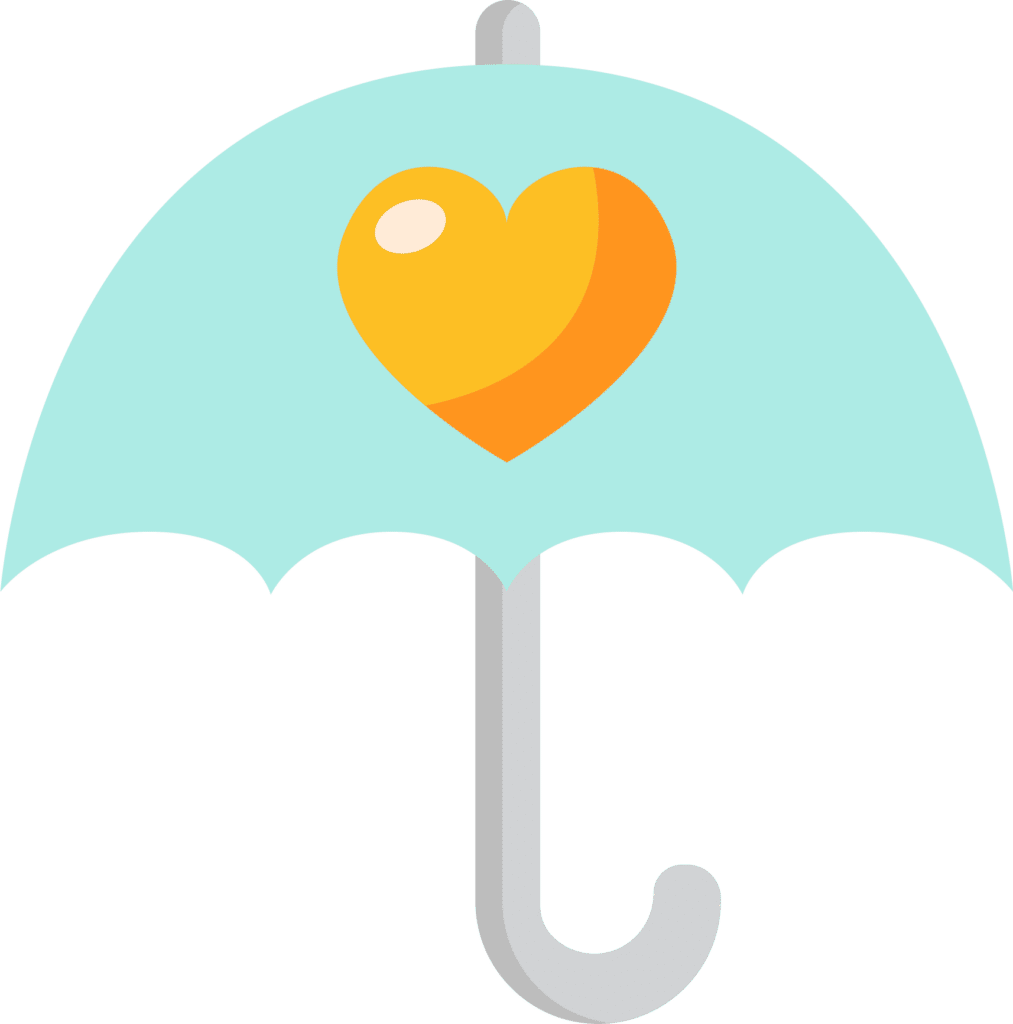
As an inpatient drug rehab in Washington State, Free by the Sea strives to combat the state’s drug abuse issues by providing evidence-based treatment. Here, you or a loved one will get the help necessary to begin the journey to recovery. If you are searching for residential treatment centers in Washington State, Free By the Sea can help you.
Free by the Sea provides residential treatment for individuals working toward recovery from alcohol and drug addiction. Our residential addiction treatment center is designed to provide a safe and structured living facility.
Why Choose Our Residential Treatment Center in Washington State?
Inpatient treatment is generally considered the highest standard of care. Patients live at the facility and participate in many different therapies and activities that help them recover. Residential treatment aims to remove someone from their addiction routine and rebuild their day-to-day life with structured, sober life skills.
Individuals who choose inpatient drug rehab in Washington state have a lower chance of relapse than those in other treatment programs. This is due to the heavily structured, intense environment that residential treatment offers.
How Long Does Inpatient Treatment Last?
The length of stay at Free by the Sea will depend on the individual. The average stay in inpatient or residential treatment is around 30 days, although this may vary based on your individual needs. Free by the Sea offers lower levels of care (PHP/IOP) to support extended lengths of stays including 60 and 90+ day programs.
How Does Inpatient Treatment Differ from Outpatient Treatment?
Individuals in an outpatient treatment center attend treatment and therapy at the facility outside of their typical day-to-day activities. In this type of treatment, people can still go to work and tend to family responsibilities. They are also able to sleep in their own homes at the end of the day.
Outpatient treatment is not recommended for people that suffer from extreme addictions. However, outpatient treatment is still a viable option for those who cannot remove themselves from their daily lives. If you are not sure which type of treatment best suits you, you should discuss your options with one of our addiction treatment specialists.
What to Expect When You Arrive
Clients who are new to our residential program will first meet with our intake and admissions specialist to ensure they feel safe and comfortable in their new surroundings. Individuals will also undergo a thorough assessment with a certified substance use disorder treatment professional. The evaluation provides the insight required to develop a unique and effective treatment program tailored to the client’s individual needs. It covers the patient background and personal history, addictions and patterns of use, and family or other issues pertinent to the client. This evaluation will also include medical history and background.
Here at our inpatient drug rehab in Washington State, your treatment plan depends on your specific needs. We are here to make sure your particular treatment is tailored to you. You can expect it to be different for everyone. You can expect to have the care that you need during your stay with us.
Therapy in Residential Treatment for Addiction
Residential treatment programs include group therapy, one-on-one counseling, 12-step meetings, presentations, and educational group sessions. During group therapy and one-on-one counseling, we will offer help through the following approaches and services:
- Addiction Education – communicating to the public knowledge and resources regarding addiction and recovery
- Cognitive Behavioral Therapy – a psychological therapy treatment plan, proves to be impressive and efficient when used in addiction and co-occurring disorders.
- Mindfulness Practice – using guiding techniques and breathing techniques
- Trauma counseling – traumatic experiences can help lead to the development of substance use disorders
- Anger Management – helps individuals to express themselves safely
- Relapse Prevention – therapy that helps build skills for breaking the addiction cycle
- Building Life Skills – learning how to cope with day-to-day life and challenging obstacles
- Shame and Resilience Discussions– this therapy helps with bouts of shame
- Spirituality Counseling – helps facilitate inner peace
In addition to educational groups, we offer process group therapy where clients have an opportunity to increase insight into the addiction and recovery process. Through this process, our clients develop interpersonal skills and connections with others in recovery. Many clients begin their journey at a detox center Washington state, ensuring they receive safe and supervised care before entering residential treatment. Additionally, clients are exposed to recreational activities as part of the recovery process.
Group Therapy in Residential Treatment
Group therapy sessions commonly involve one substance abuse therapist and a group of two or more people. During the session, each participant has the opportunity to speak about their challenges, experiences, and even accomplishments.
Some subjects revolving around group therapy may include:
- Depression
- Weight issues
- Grief counseling
- Weight management
- Addiction to alcohol and drug counseling
- Social skill development
- Self-esteem building
- Anger management
Benefits of Group Therapy
Support groups help people build social and interpersonal skills during treatment. Group therapy provides several benefits that work well alongside individual therapy. When therapy occurs in a group setting, it is developing a network of support. Knowing that others are dealing with or going through a similar situation helps bring the people of the group together and provide comfort. Each group member helps their peers deal with specific problems and come up with ways to deal with things differently. Group therapy has a way of helping people gain perspective on their issues.
Another benefit of a group setting is diversity. Everyone has a unique perspective that they add to the group. Seeing other people making positive and reassuring changes to their lives can help the group as a whole. There are a couple of different types of group therapies. There are open groups, which means anyone can join at any time. In a closed group, all of the people of the group start and end at the same time. Discuss with your addiction counselor which type would be the right one for you. Also, an addiction counselor can help you to determine if a larger or smaller group would be better for you.
Individual Therapy in Residential Treatment
One-on-one counseling is where an individual and an addiction counselor discuss issues going on in the individual’s life. This is performed in a professional and confidential setting. This type of setting helps focus on the individual’s problems. Individual psychotherapy can include parenting, addiction, weight issues, personal problems within a marriage, school or work-related problems, mood disorders, personality disorders, or just goals and ambitions. There is more intimacy between the patient and the counselor in a one-on-one therapy session.
In this setting, the addiction counselor walks the client through their behavioral health concerns and helps them through the process of healing. A single session is usually just under an hour. One-on-one counseling is usually more effective for depression and anxiety than medications. Individual therapy is reassuring in that the patient gets all the attention from the addiction counselor.
Individual therapy is not just for people with mental health issues. It is also valuable for people dealing with real-life issues such as:
- Abuse
- Divorce
- Loss of a job
- Loss of a family member
- Health problems
The discussions are based solely on what is going on in the patient’s life. This helps the counselor and the patient to target their individual needs so the healing process can begin. Privacy is not an issue in individual therapy. This kind of therapy works around the client’s schedule, which is another advantage to one-on-one counseling. Another advantage of individual counseling is the pace and course are set solely by the client.
Family Therapy
Addiction is often called a family disease. It can creep into every aspect of the addicted individual’s life, including their family. Dealing with an addiction as a family is complicated and uncomfortable. Family therapy helps to mend damaged relationships that may have been impacted during the time of substance abuse. This type of therapy also gives each family member an opportunity to speak with a professional and work through trauma associated with their struggling loved one.
12-Step Meetings
12-step programs are programs to help people overcome their addiction. The original 12-step program was based on spiritual principles and God. Many non-religious organizations use the 12-step program to their advantage. Some of the steps are foundational, and some of the steps are utilized daily.
The 12-steps in the program:
- The admittance of being powerless of the substance or situation
- God is greater, and He can restore sanity
- Turning your lives over to the power of God
- Searching for morality in our lives
- The admittance to yourself and God your wrongs
- Ready to have God make character changes within us
- With a humble heart, we ask God to remove shortcomings and anything else deemed necessary
- To create a list of all the individuals we have wronged and made peace with them
- Make direct contact and make amends to the individual that were hurt, unless it would cause injury to them or people around them
- Admittance of being wrong
- Seeking God through prayer and meditation to seek His will
- To have a spiritual awakening during these steps
Educational Group Sessions in Residential Treatment

Education is a crucial component to understanding addiction. Addiction cannot be terminated by willing it away. Drug and alcohol addiction changes the chemistry of the brain. These substances affect the pleasure zones in the brain and alter them. The brain adapts and alters the function of these cells.
This disease is very complex. Addiction is considered a chronic disease. Having the individuals understand addiction and its potential impacts is crucial in treatment. Educating loved ones of the person addicted does help them understand what addiction is and help them to be more understanding and caring towards the patient.
Contact Free by the Sea Today
You can find freedom from addiction. Remember that taking the first step is the hardest. Once you have made the decision to get sober, it’s only a matter of time. Each person battling addiction deserves support. We can help you or your loved one get started in a residential program as soon as possible. For more information about our inpatient drug rehab in Washington State, feel free to contact us here at Free by the Sea and get started on your journey to sobriety.

Dr. Richard Crabbe joined our team in 2019 as our psychiatrist and medical director. He attended the University of Ghana Medical School where he became a Medical Doctor in 1977. From 1978 through 1984, he was a medical officer in the Ghana Navy and provided a variety of services from general medicine to surgeries. He received his Certificate in General Psychology from the American Board of Psychology and Neurology in 2002.
Insurances We Accept
Free by the Sea recognizes the importance of having insurance to receive addiction treatment. Let us work with you to provide you or a loved one with premier addiction treatment services. We accept several private insurance plans. Verify your rehab coverage with us today to ensure you receive the support that you need! Find out if you are covered today!











